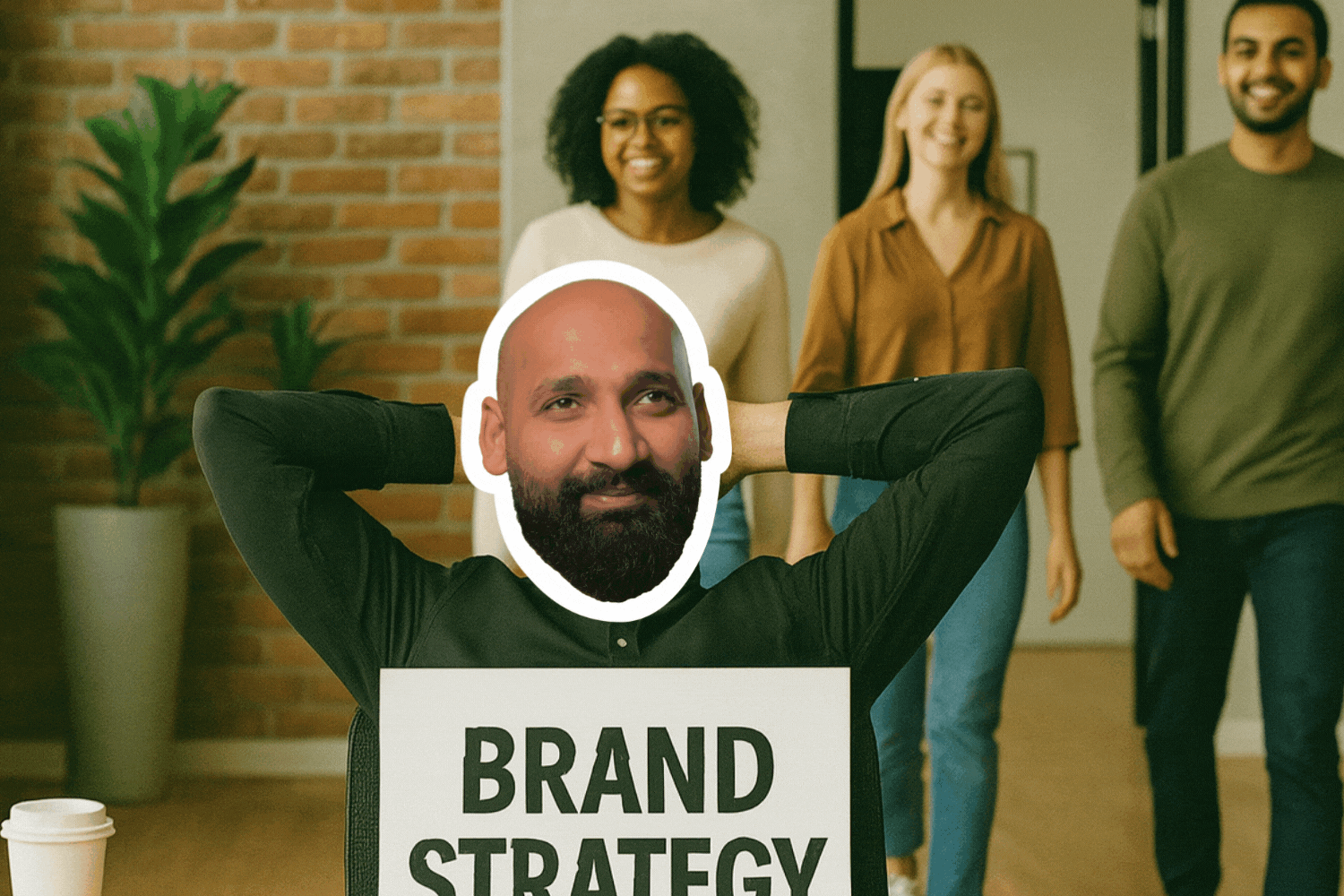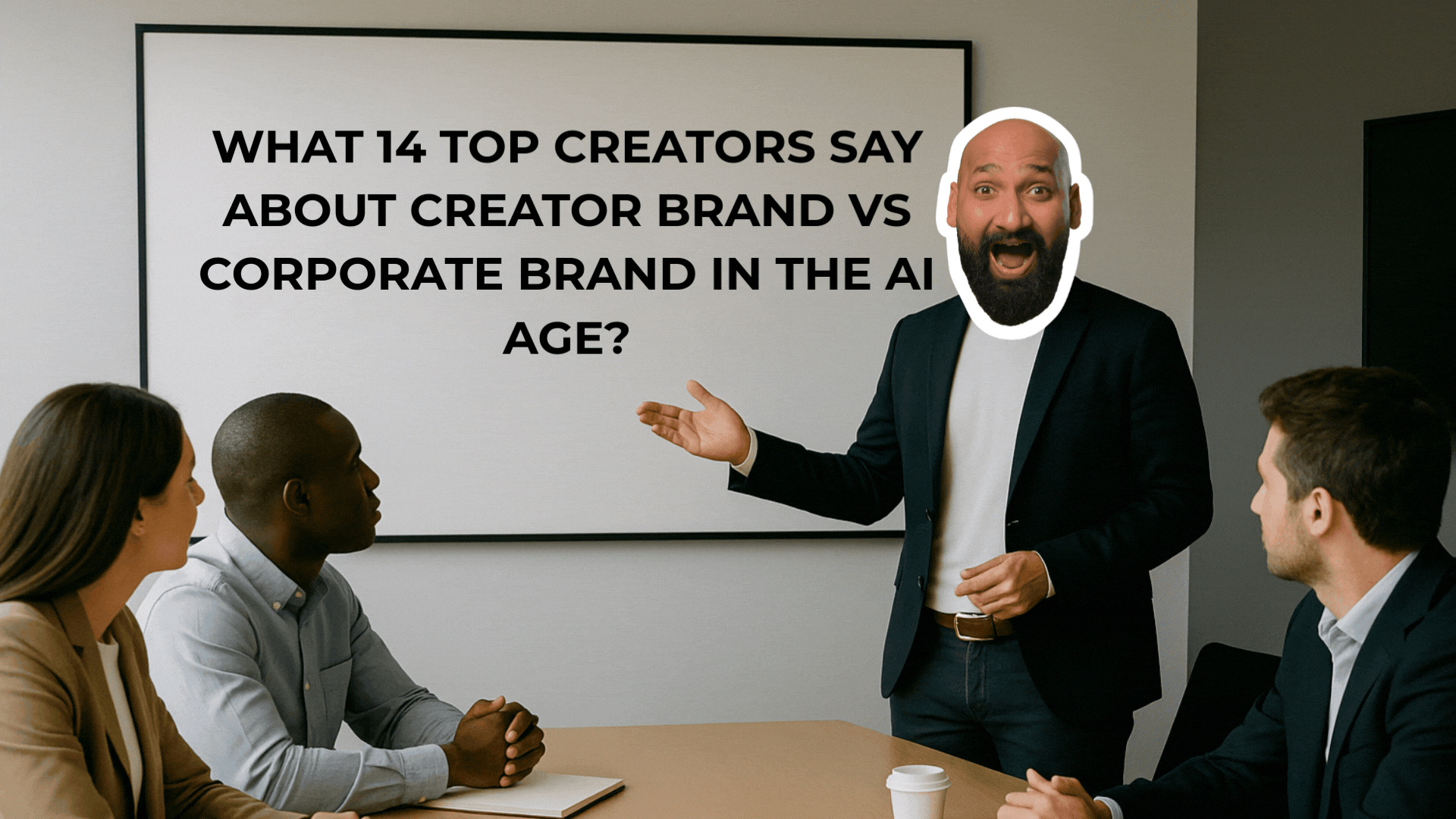In intense Brand Professor workshops, entrepreneurs often feel a transformation akin to a therapy session. These sessions promise practical outcomes. Founders “Gain clarity with our proven strategies” and “Build confidence & skills to create a story that engages [their] audience” all while feeling supported and energized. In practice, participants typically leave with three key benefits: clarity about their brand’s purpose, confidence in telling their story, and momentum to take action. As one strategist observes, after focused work “the fog lifts. The purpose feels real. The positioning makes sense” a rush of insight that fills the room with positive energy. In short, these brand workshops clear the mental clutter entrepreneurs often face, leaving them feeling stronger and ready to rock their brand vision.
● Gain clarity on your brand’s mission and values.
● Build confidence in crafting and sharing an authentic brand story.
● Drive momentum with quick, actionable steps toward growth.
The Founder’s Emotional Journey
Before the workshop, many founders wrestle with a jumble of emotions. They may feel overwhelmed by endless decisions, anxious about their direction, or isolated in their struggles. It’s common to sense imposter syndrome, questioning whether your brand is interesting or valuable enough. The Brand Professor even warns entrepreneurs to stop “playing Hide & Seek with your brand’s strategy,” a playful nod to how founders often feel lost or hidden behind unclear branding. In these early stages, entrepreneurs describe their mindset as chaotic or frustrated. They might say, “I know we have a great mission, but I can’t articulate it” or “I’m afraid our message won’t connect.” These unspoken fears create a kind of brand anxiety.
Ultimately, founders enter the workshop carrying this emotional baggage: doubt about what their brand truly means, worry about how it will be received, and uncertainty about their own role in shaping it. In our experience, a typical emotional checklist could include:
● Doubt & confusion: Uncertainty about the brand’s unique value or identity.
● Stress & overwhelm: Feeling buried under marketing jargon and options.
● Isolation: A sense that nobody else “gets” the vision or struggles.
● Pressure to perform: Fearing that a weak brand could mean business failure.
These feelings highlight why a branding session can start to feel like personal therapy. Founders are not just handling logos or taglines, they’re grappling with their own hopes and fears about their business’s future.
Brand Strategy as Therapy: Aligning Vision and Emotion
At first glance, strategy and therapy might seem unrelated. But many branding experts now say the best brand sessions do just that: help entrepreneurs explore their inner motivations and values. One consultant even labels it “Brand Therapy,” defining it as a narrative session to reconnect leaders with their brand’s emotional truth. In this context, founders treat the workshop much like a guided introspective journey. They answer deep questions about why they started the company, what impact they really want to have, and how their personal story fits the brand.
Brand Professor’s own materials emphasize this blend of heart and mind. Their workshops go “beyond slogans” to focus on authentic, powerful storytelling. They encourage founders to revisit their origin story, define a clear moral center, and articulate what the brand is really trying to say. As one facilitator puts it, it’s not just about writing copy; it’s about creating coherence. In a 90-minute brand therapy session, the goal is to help you “reconnect to your origin and emotional truth,” ultimately walking away with “clarity you can feel” and a meaningful story.
This approach mirrors a therapy format: the facilitator listens, asks probing questions, and helps the founder uncover hidden insights. When everything clicks, it often feels cathartic. Many entrepreneurs describe an emotional breakthrough, finally realizing that their day-to-day business struggles are aligned with a personal passion or core value they hadn’t fully expressed. In other words, treating brand strategy as therapy helps founders heal the confusion around their message and emerge with a coherent identity. As Sahil Gandhi (the “Brand Professor” himself) advocates, it’s about making brands come alive and feel human, which inevitably involves addressing the emotions of the founders behind them.
The Brand Professor Workshop Experience
In practice, Brand Professor’s workshops are designed to be interactive, gamified experiences. Unlike dry lectures, sessions include hands-on exercises, creative prompts, and collaborative games that make the abstract ideas of branding feel tangible. Sahil Gandhi has a knack for turning complex brand strategy into something “relatable and incredibly effective.” For example, teams might build a timeline of their company’s history, brainstorm customer personas with improv games, or craft short brand story pitches on the spot. This playful approach breaks down barriers; founders say it feels more like brainstorming with friends than a formal class.
Behind the scenes, the workshop leader acts less like a traditional lecturer and more like a mentor and partner. On the Brand Professor site, this ethos is clear: every entrepreneur should feel “empowered and inspired,” with well-being and collaboration encouraged. In other words, participants know they’re in a safe, supportive space. When a founder shares doubts or side stories during the session, the facilitator listens empathetically and ties those comments back to branding insights. This mentorship style also means peer support; founders often connect deeply with each other’s challenges in the room, realizing they’re not alone in their struggles.
Altogether, the workshop experience is described as fresh, fun, and impactful. It’s part business strategy and part storytelling masterclass. Activities are deliberately designed to feel dynamic: the Brand Professor site even frames the mission as “U & I, Let’s Rock on a mission to build... unforgettable brands.” By the end of the session, founders have not only worked on charts or worksheets but also shared personal stories, laughed at creative brainstorming, and built real connections. This combination of skill-building and emotional engagement is what helps participants make sense of their brand in a lasting way.
Breakthrough Moments and Brand Clarity
As the workshop progresses, many founders reach one or more breakthrough moments, sudden realizations that cut through their confusion. These often happen when the strategy work and personal storytelling finally click together. For instance, while fleshing out their brand’s purpose, a founder might recall a key early experience that perfectly illustrates that purpose. In that instant, the brand’s mission clicks into place, and everyone in the room senses it. It’s the moment “the fog lifts” and the brand vision becomes real.
Common Breakthroughs in Brand Workshops
Common breakthroughs include:
● Defining the “Why”: Founders articulate the deep emotional motivation behind their company. For example, they might realize that their true goal is empowering confidence rather than just selling products. This taps into the idea that a strong brand is built on underlying emotional motivations.
● Connecting Personal Story: By reconnecting to their origin story, participants often find the authentic brand story that resonates. Brand workshops explicitly guide participants to “Reconnect to your origin” and define the brand’s moral center.
● Creating Coherent Messaging: The jumbled ideas on the whiteboard suddenly align into a single narrative. One strategist notes that brands without coherence struggle; workshops help them find that coherence so “everything starts making sense again.”
● Seeing the Audience: Founders realize who their brand truly speaks to. This often involves empathy exercises that highlight customer needs. As Psychology Today reports, effective branding must consider the customer’s core motivations (safety, belonging, accomplishment, etc.). In a breakthrough, founders often pinpoint the emotional need their product satisfies.
● Planning Next Steps: Practical clarity also emerges. The founder leaves with tangible action items, perhaps a refined tagline or a clearer marketing promise. In Brand Professor language, they are ready to “Drive progress with quick, steady actions.”
To sum up the effect: after weeks (or months) of confusion, strategy provides the map and story makes it meaningful. As one expert phrased it, “Strategy gives you the map. But story is what gets people to follow you.” In the workshop, founders receive that map and learn to tell the story of the journey together.
Post-Workshop Confidence and Growth
The emotional payoff of a Brand Professor workshop is immediately visible in founders’ confidence. With clarity comes empowerment: participants suddenly have words for their vision and know how to share it. They often describe leaving the session feeling energized and self-assured. In one summary, graduates “leave with a clearer voice, a stronger message, and a brand that doesn’t need to shout to be heard.” In other words, they’re no longer second-guessing themselves; they feel ready to speak up about their brand.
Key Confidence Gains for Founders
Key confidence gains include:
● Clear Communication: Founders can succinctly describe what their business stands for. They can easily explain their why in compelling language.
● Leadership Presence: Armed with a coherent story, entrepreneurs step out more boldly. They feel it’s no longer awkward to introduce their brand, and their audience picks up on that authenticity.
● Reduced Anxiety: Decades of entrepreneurial research show that uncertainty fuels stress. After the workshop, that stress often drops markedly. For example, one startup founder reported, after intense self-work, that “my anxieties have become minimal” and negative thoughts no longer dominated his day. While this quote came from a therapy context, it highlights the same idea: gaining personal and brand clarity directly soothes anxious feelings.
● Actionable Plan: There’s now a roadmap. Founders leave knowing what to do next, from updating their website copy to designing a new campaign. This practical clarity translates into confidence that they’re moving in the right direction.
This newfound confidence is crucial. A brand strategist notes that today’s market rewards authenticity and consistency; customers sense nervousness or confusion. By having a strong narrative, the founders radiate trustworthiness. In fact, branding experts emphasize that a powerful brand “isn’t just a logo or a tagline; it’s the experience you create, the emotions you evoke, and the trust you build over time.” Brand Professor graduates understand they must live their brand values consistently, not just say them. With their story and values clarified, they can embody the brand confidently in every customer interaction.
Emotional Foundations of Branding
Underpinning all this is the psychology of branding. Modern research shows that emotions drive buying decisions more than facts. As Psychology Today explains, at the core of a strong brand is “a deep, underlying, emotional motivation.” In workshops, founders work to unearth that motivation; it might be a desire to help others feel safe, to inspire courage, or to give people a sense of belonging. The workshop format encourages asking “why” five times to peel away layers of logic and reveal the emotional “why” underneath.
Founders learn that by connecting with customers’ feelings, through narrative and values, their brand gains true resonance. For example, the case of Airbnb showed that beyond offering housing, the underlying emotional insight was belonging. By building in belonging as a theme, Airbnb soared. Similarly, Brand Professor pushes entrepreneurs to identify which core human need their startup addresses (security, belonging, achievement, etc.).
Another principle is consistency. A brand must practice its values “quietly,” as one strategy article puts it, so that every customer touchpoint reflects the brand’s emotional tone. This means once the workshop helps founders pick their emotional focus (e.g., simplicity, trust, adventure), they commit to it everywhere. As consulting firm Clarity summarizes, a brand leaves a lasting impact by the emotions it evokes and the trust it builds. Workshop graduates often leave understanding this: instead of broadcasting noise, they become brand mentors guiding customers through a meaningful journey.
Emotional Cornerstones Reinforced in Workshops
In bullet form, the emotional cornerstones reinforced are:
● Core Motivation: Tapping into what truly drives your customer (e.g., belonging, accomplishment).
● Authenticity: Aligning every brand message with real values, not just marketing hype.
● Consistency: Ensuring “quiet” integrity in all actions so customers subconsciously learn to trust.
● Connection: Framing your brand as a partner in the customer’s journey, not a faceless company. This turns a brand story into a shared narrative that customers want to follow.
By covering these foundations, workshops prime founders to think of branding as an ongoing emotional journey rather than a one-off project.
Stories of Transformation
To illustrate, consider a few founder stories (names changed for privacy). Lisa, who ran a wellness startup, came into the session agonized that her messaging felt “wishy-washy.” Through the exercises, she realized that what truly excited her customers was empowerment through self-care. Uncovering this core shifted her branding overnight. She later said the session was “like uncovering a hidden passion,” enabling her to write new website copy in minutes. Meanwhile, Raj, a tech entrepreneur, discovered that his original brand story was too product-focused. By reframing it around how his product simplifies people’s lives (an emotional benefit), his team left with a tagline and values that resonated strongly. They now incorporate daily rituals (e.g., sharing customer feedback) that keep the brand alive.
Even at larger scales, the impact is visible. For instance, Mid-Day Squares a food brand covered in Entrepreneur magazine credits its success to emotional authenticity. Co-founder Jake Karls says the key ingredient was focusing on an emotional connection: he made customers feel like they were “buying from a friend” by telling the personal origin story of his chocolate bars. Karls also faced burnout in the process and went through 37 days of therapy to address it. Afterwards, he noted his anxieties “became minimal” because he had aligned his personal wellbeing with his business purpose. His journey mirrors the workshop’s promise: by aligning brand strategy with genuine personal values, both the brand and the founder thrive.
These examples show that founders who approach branding through an emotionally honest lens do more than improve marketing; they often unlock personal growth. They stop second-guessing and start acting decisively. In many cases, participants report gaining so much momentum that they immediately implement changes: redesigning logos, rewriting mission statements, or even pivoting business direction based on their new clarity.
Conclusion
Brand strategy really can feel like therapy for a founder. By exploring inner motivations and crafting a coherent narrative, entrepreneurs resolve uncertainties and leave the workshop clearer and stronger than before. As the Brand Professor emphasizes, it’s not just about slogans but about making your brand come alive and feel human. Founders emerge with a solid story that “people will want to hear, remember, and share,” along with the confidence to present it authentically.
Ultimately, treating your brand strategy as a therapeutic process pays off. It turns confusion into clarity, tension into triumph, and doubt into determination. Founders who have been through Brand Professor workshops often describe leaving “with clarity you can feel” and a renewed passion for their work. They literally “Rock” their brand with more confidence, exactly as the Brand Professor’s motto encourages.
For any entrepreneur feeling stuck, a brand workshop may be the clarifying session needed. It combines strategy with storytelling, critical thinking with emotional insight. When it works, the result is a breakthrough, for the brand and for the founder, setting the stage for an unforgettable business journey.
Ready to gain clarity and confidence for your brand?



